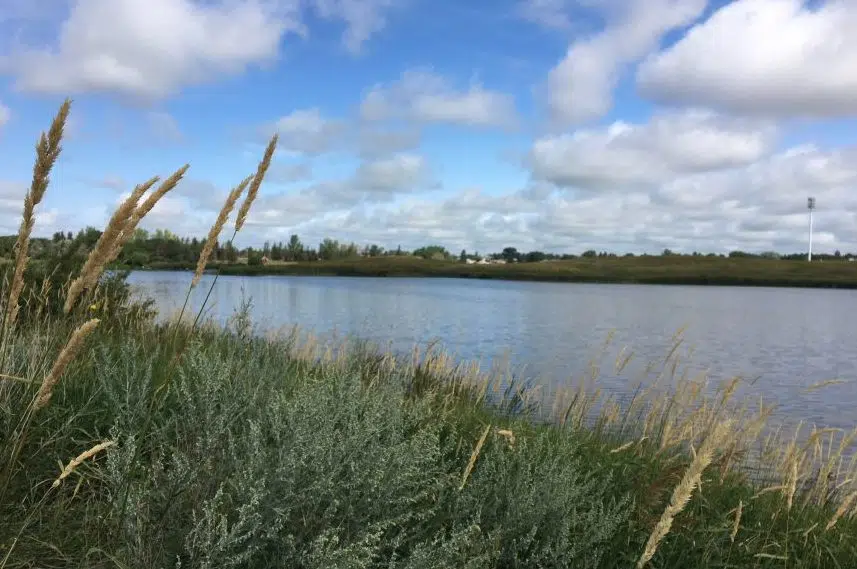In the last week, there has been some crotchety back and forth between the provincial and federal governments over federal workers testing water on private land in Saskatchewan.
The provincial minister responsible for the Water Security Agency, Jeremy Cockrill, sent a letter last Sunday to the federal environment minister, Steven Guilbeault, asking about the workers and letting him know about Saskatchewan’s trespassing law. It was also posted to social media.
However, Cockrill is now admitting he didn’t know whether the province had reached out to Environment and Climate Change Canada (ECCC) to clear things up before he sent the letter.
Cockrill said the province asked officials to check if the province was working with the federal government on anything water-related and when they got a no back, that’s when he decided to send the letter.
Cockrill said whether a call had been made wasn’t something he’d want to be aware of first.
“I was comfortable with our position on that,” said Cockrill.
He pointed out ministers send letters back and forth all the time, though it may not always be done so publicly.
“I don’t think it was outside of the norm in terms of what we’ve seen in communication with this federal government,” explained Cockrill.
Order in Council
The day before Cockrill’s letter was sent and posted online, the provincial government made a change to The Trespass to Property Act through an Order in Council on a Saturday, including federal workers as people to whom the act applies.
Cockrill said the change was made because previously, the Crown and its workers were exempt from the act.
“I don’t think I need to explain to you how we feel about the happenings of the last couple weeks. So certainly when we reviewed our options, we felt that that should no longer be the case on that specific act,” said Cockrill.
Though he mentioned the act it in the letter, Cockrill said he wasn’t threatening legal action.
Cockrill was asked why such a change was necessary — SaskEnergy or SaskPower workers aren’t usually considered trespassing when they go into someone’s yard to check a meter — and he said when it comes to such workers, you usually know why they’re there.
“They’re typically in a labelled vehicle, they’re typically wearing a uniform to identify themselves, right? That’s also kind of the implied contract that you have as a customer of Energy or Power, right, that they can come and check your meter,” said Cockrill.
“This is a case where a federal body sent staff onto private property to check water in a private dugout, they did not seek permission, and that’s outside of their jurisdiction. And Minister Guilbeault and ECCC have still not communicated specifically what they were looking for.”
Guilbeault didn’t detail in his letter back what the scientists were doing, just referring to water testing. But he did state that scientists were not looking for nitrates. Cockrill doesn’t accept that answer.
“I’m not convinced with Minister Guilbeault’s response, but again … there’s previous decisions (and) previous paths that this federal government has gone down that I think if you were in my position you’d have some misgivings about that statement,” said Cockrill.
Cockrill didn’t betray any concerns about the Order in Council when asked whether it was only made to allow the provincial government to complain about the federal government.
“If you’re going to send a letter like that one that we sent on Sunday, you want to make sure that you’ve reviewed your legislation and that you’re in a strong position to communicate what you’re trying to communicate. Certainly, we didn’t want to send that letter until that change had been made,” Cockrill said in response.
The process
Cockrill said people can think what they want about the timing or process. To him, the situation comes down to trust.
“The federal government have shown producers in this province, they’ve shown us as a provincial government, that they haven’t been great at building trust in this province,” said Cockrill.
“We’re open to collaboration. We’re open to working with the federal government when it’s in the interest of Saskatchewan, but when you start doing things and taking actions and not telling anybody what you’re doing, then that does nothing to build the spirit of collaboration or trust.”
Cockrill wouldn’t use the word “division” between the provincial and federal governments and doesn’t believe things like his letter help to sow division.
“I view it as representing the views of Saskatchewan people and Saskatchewan producers. I understand that not everybody was happy with my letter but certainly I viewed the letter as representing the overall feeling of a large swath of Saskatchewan producers for sure,” said Cockrill.
The minister doesn’t believe the exchange will affect relations between the two levels of government, and he said when it comes to federal workers in Saskatchewan, as long as they comply with local laws and there’s a legitimate reason for them to be on private property, Cockrill doesn’t see an issue going forward.











